- Hey Dullblog Online Housekeeping Note - May 6, 2022
- Beatles in the 1970s: Melting and Crying - April 13, 2022
- The Beatles, “Let It Be,” and “Get Back”: “Trying to Deceive”? - October 22, 2021
NANCY CARR * Quick—what’s the most untypical song the Beatles released, and the one I’d bet 99% of Beatles fans listen to least? Well, that’s the one that Tim Riley, the author of Tell Me Why and a well-reviewed Lennon biography, calls the fifth best Beatles song in an article in this recently released magazine special. All together now: “Number 9, Number 9, Number 9 . . .”
Of course any list of “The Top Five Beatles Songs” is, at this point in the 21st century, going to have to include a startling pick if it’s going to get any attention at all (and see, it worked!) But I can’t help but feel that a couple of Riley’s choices reveal a decadent point of view, which overvalues the outré and obscure and overlooks the characteristic and classic. See what you think:
Tim Riley’s top 5 Beatles songs:
1. “Don’t Let Me Down”
2. “If I Fell”
3. “Happiness Is A Warm Gun”
4. “That Means A Lot”
5. “Revolution No. 9”
The top three of those picks are eminently defensible, in my opinion. The last two I think are crazy. Usually I’d employ Devin’s strategy of muttering “whatever” and passing by, but I think it’s worth pausing over this list to think about what it suggests about the current tendencies of Beatles criticism.
When smart critics say stupid things
I consider Riley an astute critic—Tell Me Why is a valuable guide through the Beatles’ music, and I’ve learned plenty from him even when I disagree with his assessments. And the “top 5” article begins with a paragraph in which Riley and his co-author Patrick Foster acknowledge the farcical nature of all such lists.
“Let us proclaim first off what an arbitrary and pleasantly unpredictable process” picking the top five Beatles songs is, the article begins. It continues, “ask us next year—or even next month—and this list might wind up composed of entirely different songs, such is the grandeur of this catalog.”
Fair enough. But keep in mind that the Beatles recorded 186 original songs (per Ian MacDonald’s Revolution in the Head), so choosing the top 5 means singling out the best 2.7%. And however much rhetoric Riley deploys in his descriptions of “Revolution No. 9” and “That Means A Lot,” neither song belongs in that select group.
“Revolution No. 9” = bait for discerning experts, “Honey Pie” = evidence of girl cooties
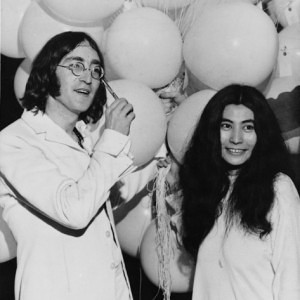
The lucky winner will get the balloon containing the REAL explanation of what “Revolution No. 9” means!
Riley picks “Revolution No. 9” for “its disorienting contours as music concrete (found sound alongside melody and harmony) and alien status as a Lennon-McCartney non-sing along.” Which translates roughly to “I like this because it’s so different from every other Beatles song.” And it’s different for good reason: it’s basically a Lennon-Ono experimental piece grafted onto a Beatles album. Riley argues that the song’s “perversity” serves a crucial function on The White Album, giving “everything else poise–as if “Cry Baby Cry” had gently hypnotized side four of The White Album off into dreamland.” And he ends his encomium this way:
“Inside this experimental track’s meandering compartments, the radio wonderland of Lennon’s deep psyche peeks through. Feint cries of Beatlemania echo in its chambers. With hindsight, you have to wonder why Lennon had to fight for its inclusion while McCartney didn’t have to mount any argument for ‘Honey Pie.'”
Riley’s phraseology here is worth unpacking. It reveals just how much “Revolution No. 9” presents itself as a problem for the hearer to work out. A critic may comment upon a song like “Please Please Me” (as Foster does in the article, since it’s one of his picks), but it does not demand the same type of explication. “Revolution No. 9” is a rarified pleasure, one that solicits the critic’s expertise and allows him to display it in full. That talking in basic terms about the song requires a descriptor that must be defined for the general reader (music concrete) says much.
Not merely liking “Revolution No. 9,” but liking it better than over 97% of the Beatles’ catalog, proves one a rara avis indeed. It’s a badge of elite taste in much the way that professing an enjoyment of Alain Robbe-Grillet’s “new novels” was once a marker of literary sophistication among English grad students. That’s part of what irritates me about this choice. It smacks of “look at me, I chose the song that no one would predict” and of a kind of contempt bred by familarity with the more typical songs in the Beatles’ catalog.
It’s no surprise that the opposite end of Riley’s White Album spectrum is “Honey Pie.” It’s not a great song, for sure. But it, “Ob-la-di, Ob-la-da,” and “I Will” serve a function on the White Album at least as crucial as the one Riley claims is served by “Revolution No. 9.” These three McCartney-authored songs, which employ music-hall conventions and concern romantic love and domestic life, are windows thrown open in the often insular funhouse of the White Album. They offer views back to the Beatles’ musical roots and out to the audience, composed mainly of non-famous people trying to make their way in the prosaic world. Which is to say: girl cooties. In gender and class terms, “Revolution No. 9” is male and elite, “Honey Pie” is female and lower-middle-class.
Here’s (just) Johnny!
Another aggravating feature of Riley’s and Foster’s article (hey, if I’m going to rant, I may as well go full tilt) is the degree to which it is The John Lennon Show. Every song in both top fives except “That Means A Lot” was written by Lennon. (Though Riley attributes it to McCartney, the song’s authorship is a matter of doubt, with MacDonald listing it as co-written by Lennon and McCartney.) In their commentaries on the top five each has chosen, Harrison and Starr are mentioned by name once, when Foster explains why he chose “Rain” as his number 1. McCartney is praised by Foster for his bassline on “Rain,” and by both critics for his vocals on a couple of songs. But Riley takes care to go on record against McCartney’s sentimentality:
“His melodies can soar even when cloyingly sung (‘Eleanor Rigby,’ ‘Here, There, and Everywhere’) and his coyness annoys even when framed by tart arrangments (‘For No One,’ ‘When I’m Sixty Four,’ ‘Martha My Dear.’)”
Only one of those songs—“When I’m Sixty-Four”—seems to me to match up with Riley’s characterization. I have a particularly hard time understanding how he gets “cloying” out of the singing in “Eleanor Rigby” or “coyness” out of “For No One.” <Whatever.> But simultaneously praising McCartney’s vocals on “That Means A Lot” for their “deeply erotic anger” and the lyrics for “circling that rarest of McCartney themes: humilty” is simply incoherent and unconvincing. Both Lennon and McCartney thought poorly of the song, for good reason; that’s why it wasn’t released until Anthology 2.
In writing this I’ve realized that part of my exasperation stems from weariness with books and articles that consist of watching two or three guys munch their way through somebody’s musical career. I’m tired of “debates” that aren’t debates. (Riley and Foster’s article is billed as one, but they mostly congratulate each other on their choices.) And I’m tired of so much music writing feeling like Guys Writing About Guys For Guys. When it comes to writing about the Beatles, I’m tired of seeing Harrison and Starr virtually ignored. I’m tired of hearing critics repeat the same old things about McCartney without really examining their foundation. And, much as I love John Lennon as a songwriter and rhythm guitarist, and consider him my favorite rock singer of all time, I’m tired of critics who’ve drunk too much of the Lennonade.


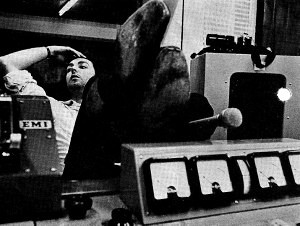
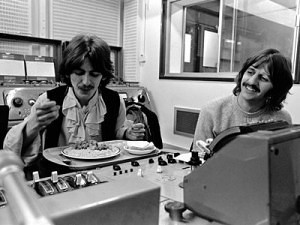
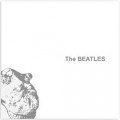

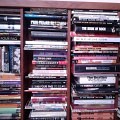
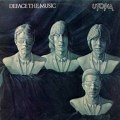

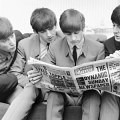
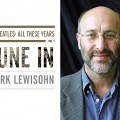
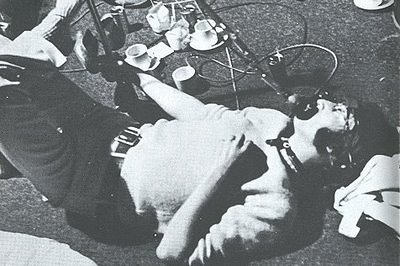
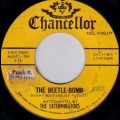

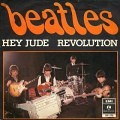

I need to say this once on this blog, because there will be lists and lists and lists to come, and anyone who cares can mentally copy and paste the following and let it represent my eternal response. The making, publishing, and debating of lists is an infernal, insidious waste of time.
I am passing from indifference to hostility on the subject, thanks mostly to comments like this, from a respondent to this post on our Facebook page: “That Means A Lot is no.4! Hahahahahahahahahahahahaha (etc) There goes his credibility.” I happen to like “That Means a Lot.” A lot. But that it sucks is, to the respondent, scientifically proven. Probably peer-reviewed and published in a Level 1 journal, too. There goes my credibility too, I guess — on the basis of a song.
No, respondent, credibility is whether you think the earth is flat or round. It has nothing to do with rating a song higher than someone else. One is fact, the other opinion. Different things.
I don’t care about Riley’s list. I haven’t read it and don’t intend to. I’m not defending it or any other list, not even the one I made here recently of micro-moments (the only reason for the existence of which is that I thought the topic was sufficiently offbeat to be worth the time — and I certainly wouldn’t have posted or published it anywhere but here, for certainty of seeing my credibility crunged by those who think Ringo is a hamfisted clown, Paul a twee bumblebee, or whatever). And it’s not as if Nancy doesn’t make plenty of good points. But they’re good points in an intellectual vacuum, which is what list-making is.
The lists I do see in passing, I usually disagree with just as much as anyone. But I ignore them for two reasons: 1) I don’t want to demonize the expression of personal opinion, as unpopular, unsupported by scientific evidence, or even incomprehensible (to others) as that opinion may be, for the freedom to so express is my bread and butter. (While the hope that others will give my expression a decently thoughtful reading is, you might say, the paper plate on which it rests.)
2) List-making drives everyone bananas, to utterly no point. Statements of personal taste engender attacks on credibility — with the attacker’s credibility, implicitly, above reproach (though that seems an enormous thing for an internet full of strangers to assume). Differing standards of evaluation inspire not just disagreement but an imputation of corrupt motive and general incompetence. It begins arguments that can never be resolved, and that go almost instantly to insult and attack.
List-making, as I’ve been taught enough times by now to have finally learned, brings out the worst, crankiest, most intractable aspects of everyone. It turns each of us into a one-person fascist army defending our piece of turf. That includes me. Talk about lists and I get humorless and self-righteous. I think I’m right, but that doesn’t make me like myself any better right now.
Life’s too short to invite a sour stomach. That’s why I mutter “Whatever” and pass on, and so hereafter shall ever do.
Do you like the PJ Proby version, Devin, or the Beatles one?
The reason such lists don’t give me a sour stomach is I don’t believe most of what I think. At this moment, as I type, do I think Tim’s list is full of shit, and full of shit in specific ways that I’m well past tired of? Sure. But that only matters if, at this moment, I’m suddenly crowned King of Fuh and can stop Tim from writing whatever he likes, for whomever he likes.
So why does this issue trigger me so? Because I think there are larger issues to be talked about, which are never talked about because they lie at cross-purpose to the making of short-term money—a kind of academification of fandom that seems to weaken popular art even as it seems to strengthen it. I think that IS important, mostly because the internet is full of (seems only to be about) fans of pop culture analyzing their obsessions; something that, certainly counterintuitively, is not producing Beatle-like advances and innovation and shared love, but Balkanization, self-consciousness, and an extension of the flaws of academic discourse. IMHO.
Devin, most of the time I wholeheartedly endorse your “whatever” policy. This particular list spurred me to comment because 1) it’s by a critic whose work I respect and 2) it seems to me to exemplify larger currents in music criticism generally and Beatles criticism in particular.
I strongly agree that free expression of opinions is vital, and have no wish to demonize Riley (really hope that’s clear in the post). But I think a big part of writing about music, whether it involves lists or not, inevitably concerns “differing standards of evaluation.” Riley seems to me to be overvaluing difficulty and obscurity when he describes why he picked “Revolution No. 9,” and to be doing so in a way that makes me prick up my “girl cooties” antennae. And of course my opinions are just as subjective, and just as open to others’ responses, as his are.
Holy shit, I love this post. So right on, so much that needs to be said—over and over and over. Nancy, is there any way you can link to the article itself, or add the other guy’s Top 5 to the post?
Where to start? No George or Ringo, as much Yoko Ono as Paul—which begs the question: if these songs were The Beatles’ best, how come John Lennon’s post-1970 career was so much smaller (in popularity, in critical acclaim, in cultural impact–and in sales) than his Beatles one was? This is the “Beatles were just a boy band” canard, turned inside out until it looks like fandom.
My problems with this kind of criticism are well-documented, but it’s also a great example of how a popular art can grow WORSE over time. Here’s how it works:
1. Person loves The Beatles. A lot. Is obsessed by them, in fact.
2. Obsession leads to listening to The Beatles constantly.
3. Overexposure makes the less successful tracks—the ones listened to less—seem more interesting. Person becomes convinced that this makes less successful tracks “better than the hits.” There’s also the feeling of special understanding, which comes from the understandable urge to connect with one’s idols.
4. If one is a critic, one puts out lists like this. If one is a musician, one fixates on, and then reproduces, the elements of one’s influences that are less successful.
The Beatles did not do this. The Beatles actually did the opposite of this, taking the most appealing aspects of their predecessors and melding them into a new form. This is much more difficult, because it’s admitting that there’s another, much more difficult to please authority besides yourself in the process. The Beatles were encouraged to acknowledge this primacy of audience taste by a big ol’ pot of gold. But it was difficult, and a drag at times. If you think “we just write what we like” is what The Beatles were doing, think again.
If these are the Beatles songs that Tim Riley likes best, fair enough—but what he hears, or thinks he hears, must be very different than what the rest of us hear, and unless he’s a straight-up genius, that makes him rather unreliable as a critic. If these are the songs that interest Tim Riley most as “texts”—which is my strong suspicion—then “best” isn’t the word to use here.
This kind of criticism actually KILLS the thing the critic claims to love. Turning popular art into a text to be dissected, a puzzle to be solved, a code crackable only by an elite, isolates it, and drains it of the immediacy and viscerality that makes it widely popular in the first place. When popular arts are taken over by elites, those arts cease to become popular, and are replaced by forms where the elites aren’t in control. This is why Beatle-like pop has to survive as the soundtrack to commercials, while Beatle-like country thrives on its own. The elites think country isn’t worth their time, luckily for country. Too bad for hip-hop though; get ready for the suck.
In their era, The Beatles were synonymous with Western freedom and democracy, precisely because they were beyond the control of elites. They weren’t a puzzle; their message was clear, and it connected like…imagine if there was suddenly a new sex position, and it was really awesome. 🙂 The Beatles were a colossal, one-of-a-kind cultural force, and not one of these songs—not ONE—had any impact in that arena. This list reduces The Beatles to the size of Tim Riley’s likes and dislikes, for no good reason.
So far, The Beatles are more immune to this than 99% of culture—so far, “I Wanna Hold Your Hand” speaks to people in a way Tim Riley can’t blunt. They remain popular. But criticism of a popular art that ignores (or actively disdains) popularity is a narcissistic power-grab; it’s a borrowing of authority from an original. It may be interesting narcissism, or well-crafted narcissism, but there’s something fundamentally bogus about it, something that destroys the object of praise while seeming to strengthen it, and I think Nancy has identified the bogusness nicely.
Michael, glad you found the post thought-provoking. I can’t find the article online and so can’t link to it. Here is the rest of Tim Riley’s list and Patrick Foster’s list (bio: “works on digital media projects for USA Today and writes about music for a variety of publications. He sometimes plays guitar and yells for a band called Wingtip Sloat.”)
Riley:
6. You Won’t See Me
7. I Saw Her Standing There
8. Rain
9. Dr. Robert
10. And Your Bird Can Sing
Foster:
1. Rain
2. Come Together
3. Please Please Me
4. Everybody’s Got Something to Hide (Except for Me and My Monkey)
5. She Said, She Said
6. Dr. Robert
7. Twist and Shout
8. Paperback Writer
9. I Want To Hold Your Hand
10. I’ve Just Seen a Face
11. Happiness Is A Warm Gun
12. Taxman
13. Sun King/Mean Mr. Mustard
14. I Am The Walrus
15. Tomorrow Never Knows
16. Strawberry Fields Forever
17. Don’t Let Me Down
18. A Hard Day’s Night
19. The Ballad of John and Yoko
20. Back in the USSR
Wow, there are THREE McCartney-sung songs in the Foster 20, and one Harrison – that’s bad. Also: Where did all that fondness for “Dr. Robert” come from? And “Martha My Dear” – annoying? Grrr… 🙂
In the article, do they say anything at all like “if you’re a Beatles fan, you’re bound to change your favorites every other week” or “naturally, there is no such thing as the best Beatles song”?
Velvet Hand, Riley and Foster acknowledge that their lists might well change if asked “next year—or even next month,” so they are clearly not presenting these as carved in stone, even for them.
I too am baffled by Riley’s finding “Martha My Dear” annoying, and by how high “Dr. Robert” ranks on both lists.
It says A LOT about the Beatles that “best of” lists can be generated endlessly with so little overlap. Not true of most bands, even great bands. Can you imagine a Stones “5 Best Songs” list that didn’t include “Satisfaction”? I can’t.
Nancy – I am having trouble comprehending a list of 20 “top” or “best” Beatles songs that does not include “A Day in the Life”. Riley’s and Foster’s lists seem to consist of their favorite Beatles songs. Because they are professional critics they present their selections as authoritative, although, I agree with you, that personal choices seem incomprehensible when writers do not bother to explain and persuade.
My favorite Beatles song is “Things We Said Today” but I would never include it in a list of top/best Beatles songs. I wouldn’t be able to defend the choice except to note that I loved it when I was 12, and I like to stay in touch with the girl that I was. On the other hand, I would include “Strawberry Fields Forever”, a song that I admire but don’t personally enjoy..
Maybe someone should compile a list of the most important Beatles songs. I believe Mark Lewisohn would put “Like Dreamers Do” at close to #1 because it was the song that got the group their recording contract.
@Susan–
I wouldn’t be able to defend the choice
But this is the beauty of it: you don’t have to. You’re not claiming any special authority with your pick, whereas Riley and Foster are, and it’s that claim (“I am a critic and here is my Beatle-related background”) that changes the game. The beef here isn’t that somebody likes “Revolution No. 9,” I’m sure lots of people do, it’s claiming authority and then not accepting the level of seriousness that must come with that. Presumably because everybody knows that “Day in the Life,” “SFF,” “Hey Jude,” and “Yesterday” are the obvious picks. Mustn’t be obvious, right? No–mustn’t be disrespectful to the work, first. Mustn’t take the piss just because the topic feels played out. Play it straight and write it better.
I personally like “Things We Said Today” loads more than “Don’t Let Me Down,” and I could spin a tale whereby it was as important as “Don’t Let Me Down,” if not more so. As could any reasonably competent writer with a deep knowledge of the Fabs. But that would be an utter waste of people’s time, right? A parlor game.
Here’s an even more treacly candidate, “‘Til There Was You”: “The replacement of the jazz-inflected Broadway musical–the cradle of much of the American songbook in the period of 1920-60–with teenage guitar group pop music (which would almost exactly replace Broadway as the generator of what most Americans listened to beginning, more or less, the moment Paul sang TTWY on Ed Sullivan), was a watershed event. For the Beatles, the song is soon lost among the riches; but for the entire apparatus of Tin Pan Alley, or the jazz musicians and cafe culture suddenly made redundant, or Hollywood studios no longer able to film this year’s hit without fear of a bomb, this meant a lot. In its tuneful squareness, TTWY is the past being sung by the future. In its Beatle-ness, it is the past being destroyed by the now–the epitome of the 60s.”
Ahem. You may say I’m a dreamer, but:
1) Gimmie Shelter
2) We Love You
3) Back Street Girl
4) Moonlight Mile
5) She’s a Rainbow
Quite arbitrary, of course.
Very well said, Nancy.
Impossible for me to make a list of “my top five (or ten) favorite Beatle songs” because the list changes from day to day, year to year, decade to decade. I never cared for “I Will” but recently I’m willing to say if any other artist had written/performed it, the song would have become their theme. It’s a brilliant composition, and it shows how thoroughly Paul spoiled us, that we can ignore that particular piece of genius, because we take so much of his work for granted.
I was never impressed with “It’s Only Love” until very recently when I learned to play it on the ukulele (if you’ll pardon the personal reference) and now I’m fascinated with the song’s construction, and how clever Lennon/McCartney were in taking the old tired chord progressions of the ’50s and reversing them and rearranging them into something fresh.
I don’t believe in lists. If I were to make an honest list of my favorite Beatle originals, it’d be 186 songs long.
I’m not even sure “Revolution 9” is one of the five best songs on side four of the White Album …
Thanks for writing this Nancy. I thought Tim Riley’s comments about McCartney were idiotic. And Riley contradicts himself in his own book on Beatles songs, Tell Me Why, where he praises most of the McCartney songs he’s here criticizing as cloying. On what planet is Eleanor Rigby and For No one “cloying”? I thought Riley’s Lennon book was badly written and organized, and I’ve lost what little respect I had left for him as a critic with these dumb comments. Seriously, Tim, if you’re reading this: PISS OFF! And why on earth would this magazine hire TWO Lennon fanboys to make up this list of the best Beatles songs? Paul gets little mention (and much of it nasty) and George is entirely forgotten!!! This list irritated the hell out of me, which is too bad because otherwise this special issue was interesting. But I wish I hadn’t wasted my money.
Thanks for letting me blow off steam. But I won’t be buying another Tim Riley book.
Drew, I’m perplexed by the disconnect between Riley’s comments on those songs in this article and the assessments he makes of them in “Tell Me Why.” I suspect that the difference is partly a function of writing a book vs. writing a short magazine piece, since the pressure to write something provocative is much higher where magazines/journalism is concerned. I think this chimes with what Devin said about lists: too often this kind of list/debate thing produces lots of heat and no light.
Much as this piece (obviously!) aggravated me, I’m not writing Riley off as a critic. I bet that a major reason he chose to spotlight “Revolution No. 9” is that he feels it’s unjustly discounted by fans and wanted to use this platform to promote re-listening to it. And that would be just fine by me if he weren’t touting it as one of the “best” Beatles songs. We all have our hobbyhorses, but I think it’s important for a critic to draw a distinction between “these are the songs I enjoy most / wish more people listened to” and “these are the best.” In the end I don’t want to dismiss Riley as a critic on the basis of this short, ephemeral article any more than I’d want someone to dismiss me on the basis of one blog post.
On the “guys writing about guys for guys” thing, that connects, for me, with what Devin said about “rockists” on the “Beatles Vs. Stones” thread. There is most definitely a masculine critical culture that disdains anything “sentimental” or “soft” in rock, unless it can be disinfected by being sufficiently avant-garde or seen as a much less dominant thread within an artist’s or group’s work (the Stones doing “Wild Horses,” for instance). “Sentimental” = not only “feminine,” but also “domestic” and “conventional” — the opposites of High Art.
“There is most definitely a masculine critical culture that disdains anything “sentimental” or “soft” in rock, unless it can be disinfected by being sufficiently avant-garde or seen as a much less dominant thread within an artist’s or group’s work (the Stones doing “Wild Horses,” for instance). “Sentimental” = not only “feminine,” but also “domestic” and “conventional” — the opposites of High Art.” Sorry but I have to get overexcited again at something you wrote and write: YES!!! ABSOLUTELY!!!! The male critical culture accepts “sentimental” or “soft” in rock only so long as the singer-songwriter is (1) homely (2) sings in a heavily masculine or weathered voice and (3) has either slept around a lot or abused women so that when he sings this “sentimental” song we the listeners know that this time he “really means it” and is, thus, “authentic” and “real.” The male critical culture tends to dismiss female artists (and male singer-songwriters like Paul) who are (1) pretty (2) sing in a heavily female or sweet voice and (3) have 30-year marriages and are boringly faithful to their partners, and thus, must be hiding something and don’t really mean it when they sing about love because they have lived too safely and conventionally. It is amazing to me how John Lennon gets away with these wonderfully sentimental lyrics and Paul is criticized for writing much the same sort of songs.
“And I’m tired of so much music writing feeling like Guys Writing About Guys For Guys. When it comes to writing about the Beatles, I’m tired of seeing Harrison and Starr virtually ignored. I’m tired of hearing critics repeat the same old things about McCartney without really examining their foundation. And, much as I love John Lennon as a songwriter and rhythm guitarist, and consider him my favorite rock singer of all time, I’m tired of critics who’ve drunk too much of the Lennonade.”
ABSOLUTELY!!!!!!!!!!!!
Hey that Riley dude said Yoko was Mishima Yukio’s classmate in Gakusuin.
You know… the Nobel laureate who happened to see Beatles in 1966 in Budokan and commited seppuku. But enough backstory. The fact was that he graduated 4 years prior to her enrolment. Make perfect sense. His list is just as insightful as that story.
@Trang, that’s so typical of how a certain type of fan treats Yoko. Instead of really digging into the facts of her life—as one would with any historical figure—there’s a lot of mythmaking. Either the myth of the Dragon Lady who broke up The Beatles, or John’s counter-myth, this genius/tycoon/mystic “Oriental” (his term). But both myths reduce a living, breathing person whose story has a lot to say, into a cartoon which says nothing, based mostly on her race.
In the age of Google, saying Mishima went to school with Yoko Ono at Gakusuin is like saying Robert Johnson was friends with Charlie Parker–a little mistake, sure, nothing to get hung about…but one that also suggests maybe it’s all a little too broad-stroke and from the hip.
That’s Yukio Mishima…
I’m getting a headache from the rattling noise produced from vigorous head-shaking.
Revolution 9–wot??
I like Tim Riley, but man is he way off.
Still, it’s at least possible that, by selecting this particular ‘tune’, he’s trying to say something like “the facts that this was released in their name, and that millions bought it, is just one of the countless things that makes the Beatles so (almost worryingly) awe-inspiring – the Who/Stones/Kinks/Byrds/Beach Boys/Donovan/Monkees/Floyd/whoever may all have had teen pop, ‘psychedelic’ weirdness, pretty ballads, fierce rock-type stuff AND even the occasional sound collage in their repertoires, but none of them ever allowed anything like ‘Revolution 9’ to happen”. And he’d be right!
Excellent point, Velvet Hand (like a lizard on a windowpane?)… The fact they allowed something like Revolution 9 to appear on an album (and George Martin didn’t put up a fight?) is a tribute to their awe-inspiring open-headedness. Because if you step back a bit and look at the whole story, a band that begins as teenage heart throbs singing songs of adolescent love and hand-holding, a few short years later producing an audacious sound collage as bizarre as anything ever commercially released? It’s what makes them the Beatles, and not The Fourmost, or The Searchers.
The inclusion of Revolution 9 on this “list” doesn’t bother me at all. What bothers me is the obvious Lennon bias of both “critics,” the fact that Riley makes ridiculous slams on some of Paul’s best songs, and the fact that George’s work doesn’t even merit a mention. Why get TWO Lennon fanboys when this magazine could have gotten one critic that was a Lennon fan, one that was a McCartney fan, and one that was a George fan, and let them make their cases. THAT would have been much more interesting.
My top five Beatles:
1) John Lennon
2) George Harrison
3) Ringo Starr
4) Paul McCartney
5) George Best
Here are my top 5 Beatles tracks.
1. The white noise at the end of ‘I Want You (She’s So heavy)’
2. Lennon’s cough at the start of take 3 of ‘What’s the New Mary Jane’
3. The first four bars of ‘Mr Moonlight’
4. The acoustic version of ‘Carnival of Light’
5. Pete Best’s drum solo on the Decca version of ‘Leave My Kitten Alone’
Get on my level, plebs.
LOL–you win the thread, @Dan!
“The acoustic version of ‘Carnival of Light'” is HILARIOUS!
The question is, how many other critics will jump on the Revolution #9 bandwagon before Paul starts claiming credit for it? 😉
I question the premise that criticism serves anything but the ego of the critic when it finds fault with a work, to say nothing of finding fault with these amazing McCartney songs. What I like about reading a good critic or commentator, like Ian Macdonald (whom I prefer to Riley when it comes to The Beatles), is having elements pointed out that I might have otherwise overlooked and that I can then appreciate. That adds something to my enjoyment. Can anyone tell me what I gain from being told that any element of a Beatles song is sub-par? Am I going to now save valuable time by not listening to “For No One” anymore because I’ve now been convinced that the singing is cloying? As an aside on that topic, I’ve always thought McCartney’s delivery on songs like Let it Be and Yesterday were exquisite–simultaneously tender and direct, beautiful and raw.
Chris, I’m surprised you mention Ian Macdonald there because one thing I can’t bear about his book is him telling the reader that elements of this or that Beatles song are sub-par. I can’t stand his dismissal of certain songs that have much to recommend them, and I also dislike the way his opinion on specific tracks has become received wisdom among critics. (Incidentally, Macdonald rated Revolution very highly, IIRC.) There’s too much speculation presented as, or at least mistaken for, fact in that book, which Paul has spoken out against, interestingly enough.
Peter, yeah, it’s been a while since I read Macdonald and I guess I was remembering the things that I liked about his writing and forgetting the carping.
I’m still curious, though, if anyone can think of any reason for negative criticism. Particularly of stuff that’s been out for decades and that no one needs to be warned away from. I think it’s a sign of insecurity in the face of beauty and creativity–the self-affirming squeak of a mouse in the face of a lion (no offense to mice which I think are lovely).
(Sorry, I meant Macdonald rated Revolution #9 very highly)
Riley is trolling for reactions. His list is absurd and he knows it.
Great to read your comments, Nancy, and everyone else’s. Lennonade, lol. Awesome.
I agree with Devin that the lists thing is just… not worth paying much attention to. Not that that is going to keep me from commenting, though. Especially when authored by a critic whose tastes are so diametrically opposed to my own that he can call “For No One” “coy,” and “Eleanor Rigby” annoyingly “cloying.” As for “Honey Pie” and “When I’m 64,” I’m always baffled by people who seem to resent their very existence. The songs clearly succeed on their own terms; they are excellent (albeit tongue-in-cheek) examples of the genre. (And seriously, how can you not crack up when Paul does the “PLAAAAAY IT TOOOO MEEE, PLAAY IT TO ME HOLLYWOOD BLUUUUES”) bit? It’s such spot on, hilarious parody. Anyway: obviously it’s fine to dislike a certain genre, but to say good examples of it shouldn’t exist is to say the genre itself shouldn’t exist. Which is a ridiculous and megalomaniac thing so say.
Anyway, this cutting down of some of Paul’s best songs (“Rigby,” “For No One”) seems to be an extension of the same iconoclastic spirit of putting “Number 9” in the top five. Which is fine; whatever. It’s fun to shake things up. Personally, my problem with the song is that I don’t feel the artist is meeting me halfway. If an artist (poet, painter, filmmaker, whatever) is going to break the “rules” of the art form in a way that really challenges the audience, I need to feel that the artist has worked equally hard to express something meaningful in this radical way. Otherwise it just feels like a con.
Annie, that’s interestingly put about not feeling the artist meeting you halfway in “Revolution No. 9.” I wonder how much interest people would feel in the song if it were by anyone else — Riley talks about its giving “glimpses of Lennon’s deep psyche,” and that’s what most people who comment on the song at all favorably seem to focus on. That’s part of what I meant about the song soliciting critical commentary and presenting itself as a riddle. It’s a riddle that appears chiefly to captivate people who are fascinated with Lennon’s psyche. Without that, how much interest would the song have, musically?
@Nancy, the reason I don’t dig “Revolution #9” is that it’s the beginning of Lennon NOT showing his psyche—or more accurately, hiding his psyche behind two concepts: “politics” and “art.”
How much of any meaning to “Revolution #9” are we supplying ourselves, and calling it John’s intent? “This part scares me, so John must’ve wanted me to be scared, and he must’ve been scared himself!” Don’t get me wrong, as sound collage, it’s interesting—but it’s not a particularly revealing window into John Lennon the person. He would tell you what he thought, he wasn’t like Dylan, he didn’t talk in riddles—and often disavowed riddly songs (like “Walrus”) as “gobbledygook.” But “Revolution #9” isn’t gobbledygook? What’s the diff? Like “Mary Jane,” “Revolution #9” isn’t necessarily deep just because it’s weird; and the fact that John really stopped doing these kinds of collages suggests that the form didn’t scratch his itch to communicate very much at all.
“In My Life,” “Help!,” certainly “Strawberry Fields Forever”—these feel like authentic glimpses of how he experienced life, and you can tell this because they are at cross-purposes to his Chief Beatle persona. “Revolution #9″—like “Revolution”—is him acting inside a persona. Whenever John gets political, he gets very impersonal, very theoretical (just like Yoko does); John Lennon wanted peace, freedom, ease, etc—as if all of us don’t want these things. As if we needed to learn. “Revolution #9” is part of Lennon’s “you should learn” tradition, like “The Word,” not the self-revelation one.
While he was fascinating and thought-provoking when he talked about himself, he really was very opaque and distant when he talked about politics. In my experience anybody who really digs John Lennon as a political figure doesn’t want to know much about him. They’re satisfied with the iconography. Lovers of “Revolution #9,” ditto—they’re in love with an image of Lennon. Which is OK, but it’s just an image. “Jealous Guy” (or “Julia”) show me much more about John Lennon’s inner life than “#9” does.
Hm. When I started listening to that album at 11 or thereabouts, I had heard so little music that I had no idea that “Revolution 9” could (or should) be perceived as standing out like a sore thumb. I didn’t know that Yoko Ono (whom I hadn’t heard of) had been involved or who in the group had been the driving force behind it (don’t think I even knew their names at this stage), I just knew that it was by the Beatles, and therefore assumed that they had all been involved in making it (just as I assumed they had all been involved in making “Yesterday”, “Within You Without You”, “Julia”…), and that they had placed this “interesting” “song” (I remember that for the first few listens, I kept waiting for a song to emerge) on the record for a reason I was too young to understand. That’s the way I still (try to) listen to it today, and I’m happy when it works. The actual story behind “Revolution 9”, or what I’ve read of it (John: “See, Paul, how I’m really the fascinating and way-ahead one here?”, basically), is just too depressing.
I also liked “Two Virgins” when I was 13, and not because I found the cover strangely erotic. Sigh.
@Velvet:
The actual story behind “Revolution 9″, or what I’ve read of it (John: “See, Paul, how I’m really the fascinating and way-ahead one here?”, basically), is just too depressing.
THIS. I actually like Revolution 9 for what it is, and think it’s a neat thing to have on (what I consider to be) a ragbag of an LP anyway. Why not? What makes it distasteful, and quite distasteful, is the song’s role in history (Manson) and its role in the psychodrama of The Beatles, which is like watching a gardener torch his garden because his new wife thinks gardens are bourgeois. She might even be right, but it’s not fair to his fellow gardeners, much less the millions of people who love to walk through them.
Michael, I think this goes back to your point about some fans wanting “special understanding” of an artist’s music. Anyone with a few brain cells to rub together can hear Lennon’s inner self in “Help!” or “In My Life.” But getting “the radio wonderland of Lennon’s deep psyche” out of “Revolution No. 9” requires either a) profound insight or b) a strong expectation that that’s what you’ll hear in the piece, coupled with a good bit of projection and finished off with a desire to prove oneself a better listener than all the folks who don’t “get” it. [I vote “b,” for those keeping score at home.]
I’m sensitive to this kind of thing in part because I don’t want to do it myself, and see the temptation only too well. The line between interpreting a song and overinterpreting it is a fine one, and the danger of seeing what you set out to see is real.
Agree, Nancy. I don’t think there’s any harm in it, but I think it’s an occupational hazard of “thinking about the Beatles a little TOO much.” And it can swallow up, or at least distort, the actual work/artist.
Riley’s point is interesting as far as it goes, it just doesn’t go very far. What’s a crowd chanting “block that kick” represent in Lennon’s psyche? Given that we’re dealing with a dude (Lennon) who was so cautious about revealing his innards to others that he refused psychotherapy for his entire life–with the exception of Janov, which is a whole ‘nother kettle of fish–I think it’s much more likely that Revolution #9 was John showing us exactly what he wanted us to see, with the expectation that we would draw the conclusions he wanted us to draw as a result.
Remember, nobody saw “Help!” for what it was, when it came out. The guy was good at manipulating his public image. By 1968, there was nobody better. Lennon was just as good a PR man as Paul, maybe better, because he’d discovered the best sell is to appear never to be selling.
By the way, I love Revolution #9. It’s like the climax of Beatles psychedelia. It’s provocative as hell but in a good way, I think – and in the spirit of the Beatles, 66-68. It’s not in my top five but I definitely dig it. And I can’t really see a reason to doubt this Riley dude is being genuine. In fact, I’ve got no problem even if he isn’t being entirely genuine and has elevated it to his top five to promote the merits of a track that is too often dismissed. I seriously doubt he thinks it’s crap or doesn’t understand it at all but has put it in his top five to make himself appear enlightened or interesting. Maybe he’s being provocative, but in a good way. 😉
Just sayin’. 😉
Revolution Number 9? Really? Really? Bueller? That song (and I hardly even feel comfortable calling it that) sounds like someone ran the soundtrack to a cheesy horror movie through a garbage disposal. Puh-lease. Riley is clearly just too cool for the rest of us.
Well, it’s certainly not a song. If people are looking for a song then Revolution 9 will certainly disappoint. Maybe that’s the problem a lot of people have with it – they feel it’s taking up space where a song could go. I don’t feel that way – maybe Riley doesn’t either. But I’m uncomfortable with the scepticism regarding Riley’s opinion. We have to allow for the wild vagaries of personal taste. For example, when it comes to the White Album, I’d genuinely rather listen to Revolution 9 than Ob-La-Di, Ob-La-Da or Rocky Raccoon. Some might accuse me of imbibing too much Lennonade, but I’d argue they have an overfondess for Maccadamia nuts 😉
Yes, but @Peter—and I know Devin disagrees with me on this—Riley didn’t claim, “These Are My Favorite Beatles Songs.” Nobody would, or could, argue with that. Shit, I constantly listen to “Getting Better,” but I’d never claim it’s one of the top five best Beatles songs. “The best” has to mean something more than just “my favorite”; favorites are trivia, relatable only to that person, whereas the best is locating these choices in something bigger, or at least other, than oneself—and it’s that larger point that makes the information worth reading. Everybody’s got favorites, and in this age of the internet, everybody can and will tell you them. But it’s precisely because we live in an age of absurd information oversupply that critics (of which Riley is one) claiming authority/special knowledge (which Riley does) to attract our precious and finite attention, need to show more discipline.
Rather listen to Revolution 9 than Ob-La-Di, Ob-La-Da or Rocky Raccoon. Some might accuse me of imbibing too much Lennonade, but I’d argue they have an overfondess for Maccadamia nuts 😉
Lennonade and Maccadamia aside I hate all three of those songs with a passion. There aren’t very many Beatles songs I hate, but of the few those three are at the top. And for what it’s worth I can’t stand Tim Riley either. I had no respect for his opinions after reading Tell Me Why. I never read anything by him after that book and I don’t plan to. Beatles criticism and probably all rock criticism is too much over blown, blustering, opinion being passed off as fact. Great post Nancy.
Peter, I believe where you and I differ is that I think “the wild vagaries of personal taste” shouldn’t drive a list that a critic puts forth as the “best” Beatles songs. “My personal favorites,” “The ones I listen to most now,” or “Some I like” — fine. Let a thousand flowers bloom. We should all let our personal freak flags fly as high as we wish when we’re figuring out which song to cue up next or engaging in a bull session with our friends.
But I think it’s obnoxious for a critic to enshrine his idiosyncratic taste as “the best,” all the more so when it replicates elements of music criticism that I think are invidious.
Riley’s list reinforces one of the memes I’m most thoroughly sick of, that Lennon was the One True Genius in the band. (See Robert Christgau, Philip Norman, et. al). You may find a jar of Maccadamia nuts offered up now and then, but there’s a Lennonade stand on every critical corner. And Harrison and Starr often get left out of the equation entirely.
@Michael & @Nancy, I take your point about the nuance between ‘best’ and ‘favourite’. I guess I’m giving Riley some leeway there since the idea of a definitive and objective list of the ‘best’ in terms of quality is so deeply flawed and preposterous as to be unworthy of any consideration at all. How can anyone objectively define and quantify the overall quality of a Beatles song – or anything else, for that matter? Robert M. Pirsig drove himself nuts pondering that one! So I guess I’m giving Riley the benefit of the doubt by assuming the list is meant to be seen as subjective, despite the lazy and/or pompous semantics at play. I do share your annoyance of critical dogma on the subject, though, and agree that more discipline is required. Zen and the art of Beatles criticism, perhaps.
@Peter, this is where I always talk about things like popularity and historical context, because the first can be measured, and the second can be roughly estimated by canvassing the cultural reaction at the time of appearance. So, as imperfect as it is, this technique gives one a place to stand outside of personal preferences—not that personal preferences don’t matter, they’re at the very heart of what we’re talking about. But…remembering my “Zen and the Art of Archery,” which I read long ago and should re-read, a certain kind of criticism exists where the critic transcends his/her individuality to occupy a common space with the object of criticism; that’s what I think Devin’s Beatles criticism often does. It’s something I’ve never gotten the hang of, myself. It’s the opposite of “5 Best” lists, and while “My Favorite” lists can whisper a direction to head in, it’s much bigger than that, too.
Well then, Tim Riley, by that token I will go on record as saying that Paul McCartney’s best solo song is “Suicide.” Fey, obscure, and rife with girl and music hall cooties.
Top 5, not in any particular order, except by recording date:
Tomorrow Never Knows
A Day in the Life
It’s All Too Much
Revolution #9
Helter Skelter
There. Listen to these really loud.
[…] chimes with many things we’ve said at Hey Dullblog about the Beatles — and McCartney in particular — having “girl cooties” in the eyes of […]
These people think about The Beatles way too much.
Lists are intended to be springboards for discussion — as soon as someone states preferences, someone else will offer other preferences, with explanations. This has no doubt been going on since creative souls made paintings on the walls of caves. (Og, that image of the bison doesn’t look right. How about…) But these are pop songs, folks. There is such a thing as taking something too seriously. The inclusion of “That Means a Lot” makes Tim Riley’s list a bit of obvious puckish provocation.
The comment by dan has the right take on this, I think.
I genuinely admire “Revolution 9”, but it takes quite a lot of time to get into, and it requires multiple listens. I think what fascinates me about it, is the seemingly random collection of sounds that still manage to produce a musical and sonic entity. It is not just about what sounds are being used, but also how they are pasted together.
Of course if you listen with the expectation of hearing a pop/rock song, you’d be disappointed. It is not rock, it is something else.
Also, I’d like to add a comment about the premise here.
“It smacks of “look at me, I chose the song that no one would predict” and of a kind of contempt bred by familarity”.
That is most definitely not the case for me. I genuinely love it, just as much as I love “And I Love Her”, “Yesterday”, “For No One”, “Eleanor Rigby”, “Hey Jude” etc. It’s just different approaches to music, and there is nothing wrong with that. There is no need of all this dualism and “them and us” kind of thinking (which is why I agree it is arrogant of Riley to almost only include Lennon songs). Both “Yesterday” and “Revolution 9” have great artistic value. They just work differently.
Then:
“In gender and class terms, “Revolution No. 9” is male and elite, “Honey Pie” is female and lower-middle-class.”
This is stereotyping. “Revolution 9” is only “male and elite” as long as it is verbalized and thought of as such (a matter of culture). What about women in avant-garde?… like f.e. Yoko Ono…
@Anders,
I’m enjoying your comments–keep ’em coming!
“Revolution 9” is only “male and elite” as long as it is verbalized and thought of as such (a matter of culture).”
By this logic, no work of art can be located within the time and place of its creation. If an individual audience member 55 years later feels something is so, then it is so? I don’t agree.
Compare: “This statue of Augustus is only ‘male and elite’ as long as it is verbalized and thought of as such (a matter of culture).”
As with statues of Augustus, the precise cultural setting in which “Revolution #9” was created is known, and in that time and place, the idiom used for Revolution #9, musique concrete, was unquestionably European, high-status, male and elite; go look at its Wikipedia page. And I’d argue that’s precisely why Lennon wanted to include it on the White Album–a collection of pop music by a pop group. Was he sincerely trying to push out the definition of pop music? Or was he kinda bored with Beatledom, wanted to annoy Paul, and wanted to be seen as A Serious Artist? The fact that Lennon stopped making music like this–that musique concrete was a flirtation, not an enduring interest–suggests to me the latter.
The involvement of Yoko Ono in that track doesn’t change all the cultural baggage around musique concrete, any more than the presence of classical players on “A Day in the Life” makes that song any less of a pop song, written and recorded by a pop group. That Revolution #9 appears on a BEATLES album is what makes it extraordinary; it’s why we’re talking about it and not, say, “Life With the Lions.” It can’t be separated from the clash of contexts; the clash of contexts is the point.
I am glad you genuinely love Revolution #9. I actually like it, myself–within that amazing crazy-quilt that is the White Album. But putting it on a “Best Beatles songs” list is like saying “The best hamburger I ever had was when I ordered one off-menu at a Chinese restaurant.” Taste is inarguable, but there’s a whiff of snobbishness and ostentatious boredom-with-the-ordinary. I genuinely find myself singing “Christmas time is here again…O-U-T spells out,” during the holidays; but I recognize that as an idiosyncratic personal taste, not one of the five best Christmas songs.
@Michael I would actually argue that within the context of The White Album, ‘Revolution 9’ does not represent a clash as much as it does an apotheosis. The whole album, prior to that point, is littered with weird scraps of sound: that eerie string section at the end of Glass Onion; the muttering at the end of I’m So Tired; bird noises; pig noises; the ghostly scraping and wailing at the end of Side 3; the apocalyptic sounding coda after the fade down on Helter Skelter; voices that come and go between tracks; the ‘Can You Take Me Back’ snippet… Even the songs themselves, particularly John’s, have a strange, creeping uneasiness to them. In that context, ‘Revolution 9’ sounds like the logical conclusion: it’s all the hinted at weirdness suddenly coming to the forefront and made manifest. If you thought something was off about The White Album, but you weren’t quite sure, ‘Revolution 9’ is the confirmation, the lifting of the curtain to see the nightmare that lays behind. On “A Hard Day’s Night” or “Rubber Soul” ‘Revolution 9’ would have been a clash. On The White Album, it makes sense, and represents a conceptual stroke of brilliance, even if you don’t like the track.
@Matt, I agree with this.
My issue with White, well known to readers here, is precisely this aesthetic. I’m not sure it was entirely intentional — I think it might have been the terrible era and the breakup of the group starting to seep into the music, turning something truly unique and wonderful into the drab, tired, utterly prosaic, crowd-following roots rock and sentimental pop of “Let It Be.” White, as great as it is, is when The Beatles become Just Another Group. Maybe “Revolution #9” is exactly when it happened? What is “Good Night” if not a return to the schmaltzy stuff the Beatles were sworn to destroy?
To my ears, “Revolution #9” represents not an apotheosis, but a final falling apart, a failing of strength, a collapse. Art being overwhelmed by Reality. And while you can think, “Wow, that’s an interesting idea” or “That’s what makes White so special”–and I would agree with both things–to actually ENJOY an album of Beatles music that is deteriorating before your eyes, descending into weird scraps of sound, evoking a strange, creeping uneasiness takes profound intellectual distance. It’s like Joycean fiction–it’s a final throw of the dice from an artist overwhelmed by reality. And while that’s great fun as a text to dissect, for obsessives and scholars to hash over, it’s never proved to be successful in a popular sense. And The Beatles were a pop group. Those were the terms under which they presented themselves in 1968, and even today. I find White, in some senses, a betrayal of the contract–and never more so than “Revolution #9.”
I guess what I’m saying is, I don’t look to The Beatles for strange, creeping uneasiness–life provides that in abundance. And John (and Yoko’s) fascination with such textures, to me, is the mindset of the junkie. It’s very much like what is happening today–society is coming apart, and the impossibly rich smackhead and his artist lover are watching TV with the sound off going “oh wowwww.” On White, Lennon’s genius hasn’t left him, so it’s really wonderful and listenable in parts–but it’s a harbinger of his, and his group’s, final curtain. I’m not enough of a scientist to enjoy hearing that, though many others are and do. I envy them.
@Michael “It’s a harbinger of his, and his group’s, final curtain…” “To my ears, “Revolution #9” represents not an apotheosis, but a final falling apart, a failing of strength, a collapse.”
Although I will defend ‘Revolution 9’ in and of itself, I can’t disagree with this context. I also think those reasons are precisely why Paul reacted so badly to ‘Revolution 9’ and why he fought so vehemently to keep it off the album. When he came back from America and heard what John had spent weeks working on, it must have sent him into a panic attack. Not because he disliked experimental music, and not because he had dabbled with that sort of thing first and was being upstaged, but because he was now faced with a permanently pissed off, smack-addicted, incommunicado partner brandishing the product of his mental collapse as a signifier of personal difference and enmity. Right then, Paul had to have seen the writing on the wall.
I think there’s a difference. A stature of Augustus is by definition male and elite because 1) he was biologically an man and 2) he was the actual leader of the Roman Empire, which makes him an obvious part of an elite (a political elite in this case). But then you can just as well say that Yoko Ono’s art is female by definition because she is an actual woman.
What I don’t buy into is the idea that because some music is soft, melodic, easily accessible etc, then it is to be defined as female. Many people seem to think that way these days, so it would naturally be reflected in Wikipedia articles and things like that. Obviously, the Beatles (a pop group) had many female fans, but wasn’t that just as much because of their sex appeal?
I’d say, there are many ways you can be a man, woman, transgender, or just an individual person with your own quirks. I would consider myself a man, but with soft values, and I can enjoy pop as well as avant-garde without necessarily regarding one of them as inferior. I’m sure others would regard it as inferior, and that will have an influence on how the counterpart reacts, but it doesn’t have to be that way.
However, because our culture is like it is: essentially patriarchal and with grown-in gender roles and primarily men in power, that naturally has an influence on how people see themselves and others as men and women. I myself was regarded as feminine in school because I couldn’t live up to the other kids’ macho ideals about “real boys” and “real men”. But I still identify myself as a man (and many different things). But like Sinatra, I just do it my way. And I have always wanted to challenge gender stereotyping for the same reasons.
Anyway, it’s a complex issue, and at the end of the day, the distinction between culture and “biology” is probably very blurred.
@Anders, 100% agreed on all points. I think a lot of what you’re saying here is what Nancy was saying in her own way.
Here’s the thing, though: “Revolution #9” isn’t “Yoko Ono’s art.” It’s a collaboration between her and John and George, engineered and produced by men, and it’s on a Beatles album, which acts as a powerful frame and context for the track. All that confers incredible legitimacy and power. Nancy’s point was that Revolution #9 was created in an idiom that was elite and high-culture and male and European and thus VALUABLE; and Paul’s track, though it was written and performed by men, and had the same framing of legitimacy and power, was in an idiom coded feminine and thus less valuable. That’s how much patriarchy trumps everything. Musique concrete is OK for a Beatles album, but “granny music” isn’t.
So while a critic might include “Revolution #9” as a kind of assertion of intellect and eccentricity, it’s difficult to imagine any critic doing the same with “Honey Pie,” for exactly the patriarchal rigid gender binary bullshit that you mention. It bedevils me as well, and I applaud you for “doing it your way.” That is brave and human and the future, I truly believe.
However, I can not recall having seen much praise of “Revolution 9” in general, except for Mr. Riley and Ian McDonald (who – if I remember correctly – actually regarded it as artistically superior to much of the avant-garde music that inspired it (e.g. Stockhausen), arguing that it is richer in musical and artistic imagination). Elsewhere I have seen it described as and 8 minutes piece of nonsense that everyone skips – with the exception of a few weirdos like me…
Maybe it’s neither? Neither “nonsense” nor “one of the five best Beatles songs”? The internet, and fandom, tends to polarize.
I don’t know if I could pick the five best Beatles songs, but if I tried, I don’t think “Revolution 9” would be anywhere near it. It’s among my favourite tracks on the White Album for sure, but it is so alongside “Dear Prudence”, “Happiness is a Warm Gun”, “I’m So Tired”, “Blackbird” and “Long Long Long”.
Clearly the sum is more than the separate parts in the White Album, and God knows not all the stuff on it is equally interesting. But I tend to listen to it as if it was a painting. All the parts contribute to the whole despite not necessarily being that great songs. It’s a masterwork in terms of editing.
Also, I’m sure you could consider 60’s avant-garde male in that most of the avant-garde music that was known at the time was made by men. But that is likely because of the patriarchal structures of society, meaning that it was more difficult for female artists to be taken seriously. In my home country, Denmark, there was an experimental electronic composer called Else Marie Pade who was around in the 60’s, but she only really got the acknowledgement she deserves after 2000, probably in part because she was a woman. Today she is considered one of the most innovative artists within the genre, but back in the day she was not.
Anders, I want to point out that my comment about the “gender and class terms” of “Revolution No. 9” and “Honey Pie” is about stereotyping — the kind of stereotyping the rock press has engaged in for decades. There’s a reason why Lennon insulted McCartney’s work by calling it “granny music” and “pizza and fairytales.” I’m not saying that gender and class stereotypes accurately reflect reality, I’m saying that they still retain power.
I’m fine with anyone loving “Revolution No. 9.” I agree that it’s “just different approaches to music, and there is nothing wrong with that.” But it’s also true that Riley’s list is operating as a public statement, and is at least partially meant to drive clicks and engagement. Coming out with a list of more “predictable” songs would achieve neither of those goals.
OK, fair enough.
In the throes of the overwhelming, impossible, and fruitless task that is ranking Beatles songs, I think one can go a little bit insane. The other day, I was procrastinating by doing the very fun and time-consuming Beatles Song Sorter (https://sorter.neocities.org/beatles/) and I sometimes found it so impossible to make a decision that I would restart the whole application. It would generate two songs so fundamentally different that I couldn’t bring myself to call the match-up a tie, but I also couldn’t decide which was truly better. How am I meant to compare “And I Love Her” to “Back in the USSR”? Those are two very different songs, both of which I adore. Ranking any band’s discography is difficult, but I think it’s especially challenging when it comes to the Beatles due to the constant self-reinvention that became their trademark. When you’re working with two similar songs, you can assess them by the same metric. But for the Beatles, there is such rapid growth and divergence that I don’t think there’s any clear metric to use. It’s like choosing between your favorite breakfast food and your favorite dessert. Neither is better than the other, just different.
All this being said, Riley’s list is ridiculous. Someone needs to ask him point blank if he thinks “That Means A Lot” is genuinely a better song than “Hey Jude.” I don’t think any self-respecting person with ears could answer yes.
That Means a Lot was genuinely exciting at one, and only one, moment in history: when I heard it on my JC Penney turntable as part of “Sessions” in 1985. This is been objectively proven by Science and I will not be taking questions.